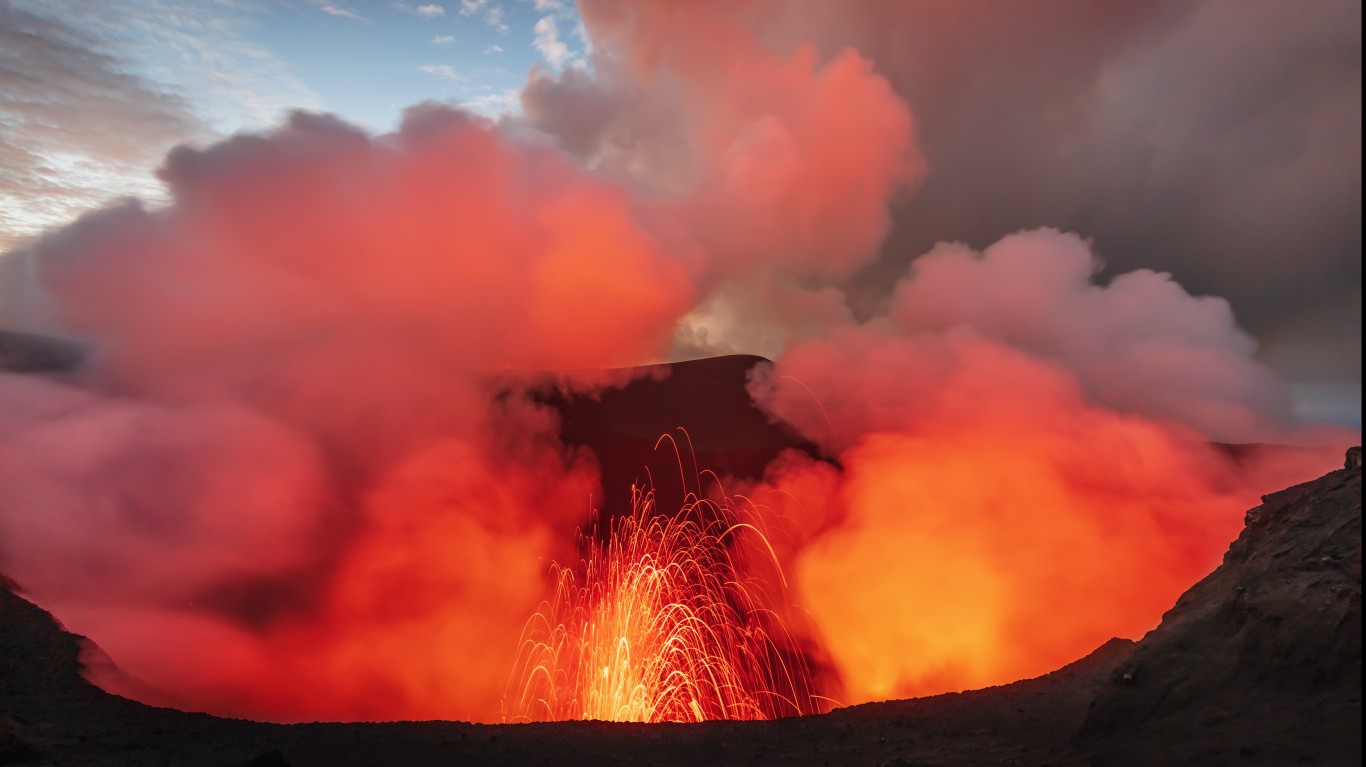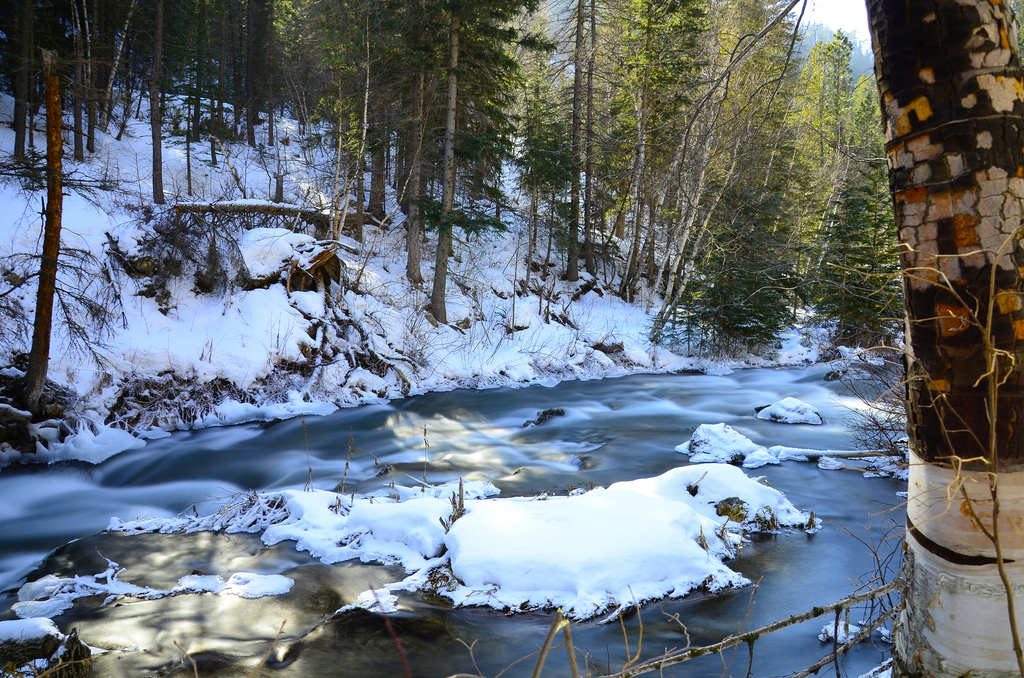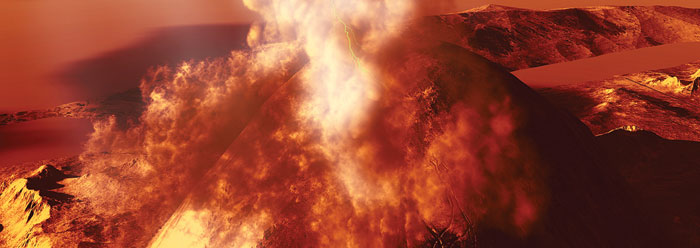If there was not a huge amount of water in the heavens before the flood then where did all that rain come from?
From below the crust of the earth.
40 days of rainwater fell from the sky.
No canopy could hold that much water without all life on earth boiling from the resulting temperatures.
Nah, it was only the waters gathered below that were called seas.
Genesis 1 ESV
(7) And God made the expanse and separated the waters that were under the expanse from the waters that were above the expanse. And it was so.
(8) And God called the expanse Heaven. And there was evening and there was morning, the second day.
(9) And God said, “Let the waters under the heavens be gathered together into one place, and let the dry land appear.” And it was so.
(10) God called the dry land Earth, and the waters that were gathered together he called Seas. And God saw that it was good.
You're confusing the two (yes, two) firmaments in Genesis 1.
The "firmament" called "Heaven(s)" and the "firmament of the heavens."
Also worth noting is that, grammatically, the "firmament of the heavens" (from Genesis 1) and "windows of heaven" (from Genesis 7:11) are identical, but the "firmament which was called Heaven(s)" (Genesis 1:8) is phrased differently.
God finished and recognized as good what He started on day 2 on day 3, and started and finished and recognized as good something ELSE on day 4.
Fair enough. The water canopy above the earth and below the sky was broken up and rain fell for 40 days and nights.
Supra.
Frozen Alaskan muck covers flattened tropical trees by as much as 2,000' in places. The trees were flattened by a sudden dump of a massive volume of floodwaters which then froze the entire depth.
Which fits the HPT just fine.
Hydroplate theory does not totally explain the freezing of tropical waters of those depths by the earth rolling over off its axis and being pelted with hail from outer space.
You're forgetting that the fountains of the great deep were already subzero (in Celsius) by the time they reached the surface of the earth, made even colder by the time they reached space, which acts like a virtually infinite heat sink, which would have cooled the fountains even colder. The material launched from the fountains that didn't make it into orbit, would have fallen back to earth, supercold.
Creationist scientists claim volcanic eruptions spewed matter into space where it is extremely cold - cold enough to instantly freeze large mammals like the elephant and mammoth.
That's a nice fairy tale, and a veiled appeal to authority.
But no volcano has enough force to launch anything into the upper atmosphere and beyond, let alone to cover the earth with debris.
And besides, the volcanos came later.
If air and matter were spewed into space from earth
Not by volcanos, they weren't.
then likely super cold temperatures from space were forced down to earth at the same time freezing the air and everything the air blasted.
You must have read AiG's "Fountains of lava of the great deep" article at some point...
But the Bible doesn't describe lava being what flooded the earth. It was water.
Even with your reading, this isn't true.
Genesis 1:9-10 (KJV) 9 And God said, Let the waters under the heaven (remember he had just defined "firmament" as "heaven", which you say was the earth's crust and now he's using the word as defined) be gathered together unto one place, and let the dry [land] appear: and it was so. 10 And God called the dry [land] Earth; and the gathering together of the waters called he Seas: and God saw that [it was] good.
Wrong.
The "firmament called Heaven" is not the "firmament of the heavens" (the sky, space).
The one in Genesis 1:8 is "samayim" ("Heaven(s)"), which is what God called the crust.
The one in Genesis 1:9 is "hassamayim" ("the heavens"), the sky.
The one in Genesis 1:14 and the rest of the chapter is "hassamayim" ("the heavens"), the sky.
Thus, to paraphrase:
1:8
And God called the [crust] [Heaven] . . .
1:9
And God said, "Let the waters under [the sky] be gathered into one place and let the dry land appear. . ."
1:14
And God said, "Let there appear lights in the firmament of [the sky]. . ."
This is supported by 2 Peter 3:5-6:
For this they willfully forget: that by the word of God the heavens were of old, and
the earth standing out of water and in the water,by which the world that then existed perished, being flooded with water. - 2 Peter 3:5-6
http://www.biblegateway.com/passage/?search=2Peter3:5-6&version=NKJV
In other words, the earth (the dry land, the crust) had water beneath it that it was standing out of (the "pillars" (Job 9:6; 1 Samuel 2:8; Psalm 75:3) being it's "legs") and it had water that it was "in," the seas which lay on top of it.
What you believe makes no difference here. Here is where we discuss facts, not opinions, especially not when they conflict with scripture and reality.
the "bursting of the crust" spewed volcanic debris into space.
The volcanos did not appear until DURING the flood, at the earliest, and likely only afterwards.
I don't know if the Alaskan muck froze from the bottom up but I do have a hard time believing the frozen hailstones penetrated 2,000 feet of tropical water to freeze the accumulated floodwaters from the bottom up.
Because you're not thinking cold enough.
Lake and river water sometimes freezes from the bottom up today.
As RD said, no it doesn't.
The heavens IS the expanse.
Which one?
The one called Heaven? Or the one "of the heavens"?
See above.
It is the waters gathered below the expanse (heavens) that is called seas.
Wrong.
It is the waters gathered below "the heavens" (the sky) that is called seas.
Not below "Heaven" (which is the crust of the earth).
See also what I said above to Derf in this post.
The waters above the expanse (heavens) is not said to be gathered together and is not called seas.
There is no "water above the heavens."
There is "water above the firmament (which was called Heaven, which was below "the heavens")" and there is "water below the firmament (which was called Heaven)," but there is no "water above the heavens."
If the crust broke open then the ocean waters
Your premise is wrong, therefore your conclusion is wrong.
There were no "oceans" (like what we have today) prior to the flood. There were seas, but no oceans, and they likely would not have been that deep, relatively speaking, certainly not as deep as todays oceans are.
There were no oceans, only seas, but why do you assert that they would have been hot? The fountains were sub-freezing, and the seas would have been normal temperatures.
which would make it even harder for the water salted with hail stones
The water in the oceans of today is the remnant of the flood.
There would have been only fresh-water seas prior to the flood.
to freeze solid to depths of many thousands of feet.
Supra.
Volcanoes spew debris into the atmospher.
So what?
Volcanos didn't cause the flood.
Dr. Brown suggested that when the great deep burst it caused comets and asteroids to be launched from earth. I call that debris.
Which has nothing to do with volcanos.




